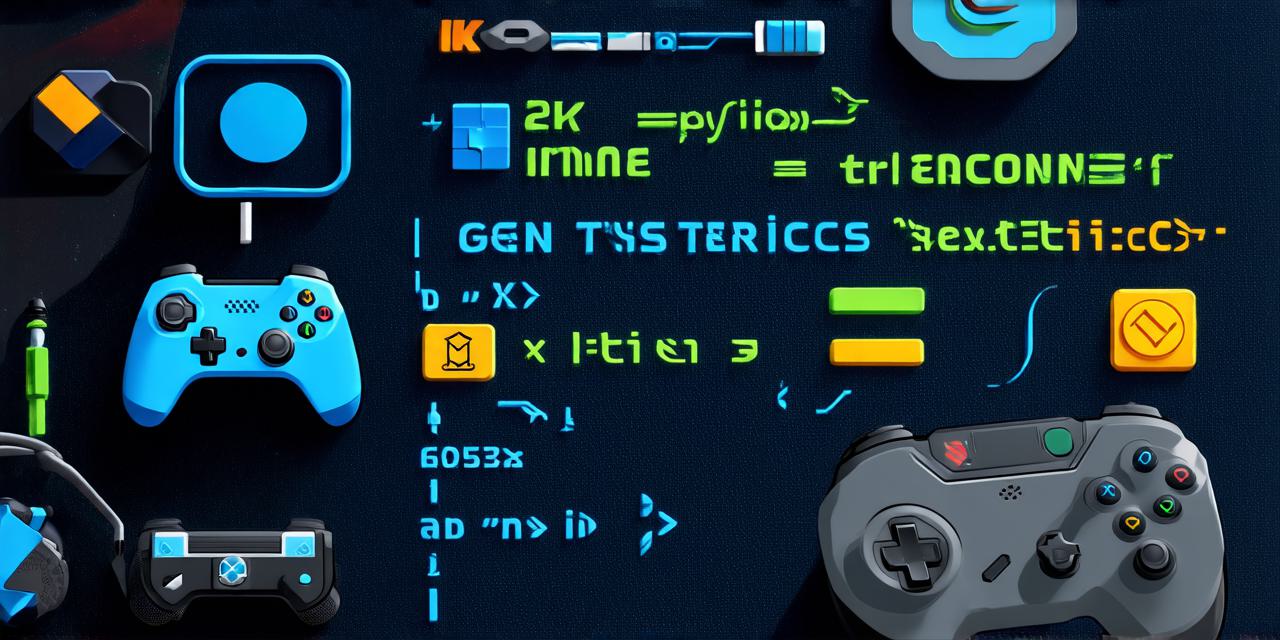1. Game Studios
The majority of video game developers work in game studios, which are companies that specialize in creating video games. These studios can range from small independent teams to large corporations like EA or Ubisoft.
The advantage of working for a game studio is that you have access to the latest technology and resources, as well as experienced colleagues who can help you learn and grow in your career. However, working for a game studio can also be highly competitive, with long hours and high-pressure deadlines.
2. Remote Work
Another popular option for video game developers is remote work, which allows them to work from anywhere in the world as long as they have an internet connection.
Remote work offers many advantages, including flexibility and a better work-life balance. However, it can also be challenging to maintain communication and collaboration with colleagues and clients, especially when working across different time zones.
3. Freelance Work
Freelance work is another option for video game developers, allowing them to work on a project basis and take on multiple clients at the same time.
The advantage of freelance work is that you have complete control over your schedule and can choose which projects to work on. However, it can also be challenging to find steady work and manage multiple projects simultaneously.
4. Education and Research
Some video game developers pursue careers in education and research, using their skills to teach others or develop new technologies.
This option offers the advantage of a more stable career with a focus on learning and innovation. However, it can also be less lucrative than working for a game studio or as a freelancer.

5. Entrepreneurship
Finally, some video game developers choose to become entrepreneurs, starting their own game development companies.
This option offers the advantage of complete control over your business and the potential for high returns. However, it can also be highly risky and requires significant investment and expertise.
Case Studies
To better understand where video game developers work, let’s look at some real-life examples:
1. John Carmack – Founder of id Software (Doom, Wolfenstein)
John Carmack founded id Software in 1993 with the goal of creating high-quality video games. The company is best known for its iconic Doom and Wolfenstein series.
Working for his own company has allowed John to maintain creative control over his projects and pursue his passion for game development without being constrained by corporate bureaucracy.
2. Shigeru Miyamoto – Co-founder of Nintendo (Super Mario, The Legend of Zelda)
Shigeru Miyamoto co-founded Nintendo in 1957 and is credited with creating some of the world’s most popular video games, including Super Mario and The Legend of Zelda.
Working for a large corporation like Nintendo has allowed Shigeru to have access to resources and technology that would be difficult to obtain as an independent developer. However, it has also meant working under the scrutiny of corporate management and being subject to budget constraints.
3. Markus Persson – Creator of Minecraft (Minecraft)
Markus Persson created Minecraft in 2009 as a solo developer, using his own resources and skills to bring his vision to life.
The game quickly gained popularity and was eventually sold to Microsoft for $2.5 billion in 2014. Working as a solo developer has allowed Markus to maintain complete creative control over his project and pursue his passion for game development without being constrained by corporate bureaucracy.
FAQs
Q: What are the advantages of working for a game studio?
Advantages include access to the latest technology and resources, experienced colleagues who can help you learn and grow in your career, and a stable work environment.
Q: What are the disadvantages of working for a game studio?

Disadvantages include long hours and high-pressure deadlines, as well as the possibility of being laid off or having your role changed.
Q: What are the advantages of remote work?
Advantages include flexibility and a better work-life balance, as well as the ability to work from anywhere in the world.
Q: What are the disadvantages of remote work?
Disadvantages include challenges with communication and collaboration, especially when working across different time zones.
Q: What are the advantages of freelance work?
Advantages include complete control over your schedule and the ability to choose which projects to work on.
Q: What are the disadvantages of freelance work?
Disadvantages include finding steady work and managing multiple projects simultaneously.
Summary
In conclusion, there are many different places where video game developers can work, each with its own advantages and disadvantages. The right choice for you will depend on your career goals, skillset, and personal preferences. By exploring the different options available and considering real-life examples like John Carmack, Shigeru Miyamoto, and Markus Persson, you can make an informed decision about where to pursue a career in video game development. Whatever path you choose, remember that hard work, dedication, and passion are essential for success in this exciting and competitive industry.



